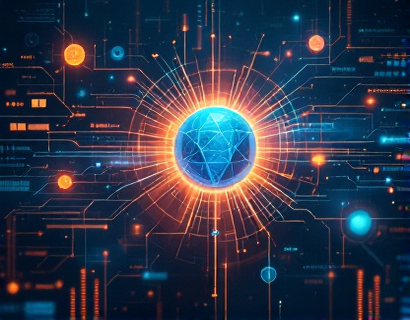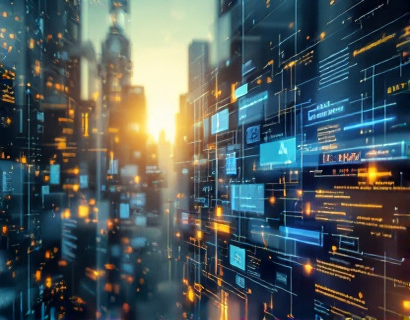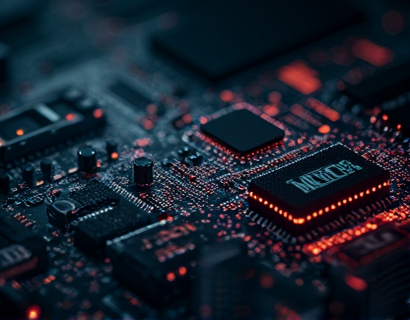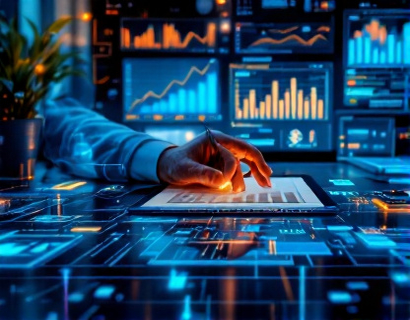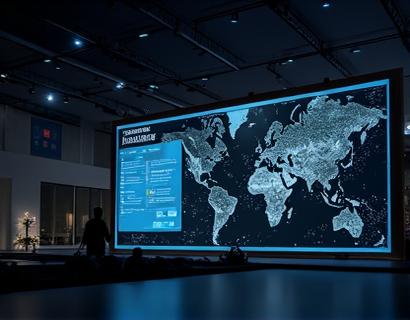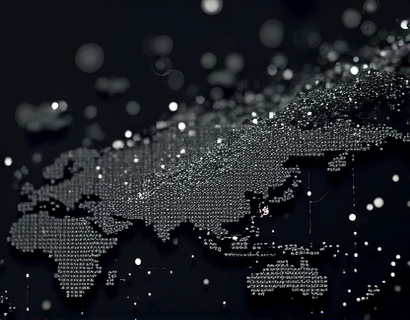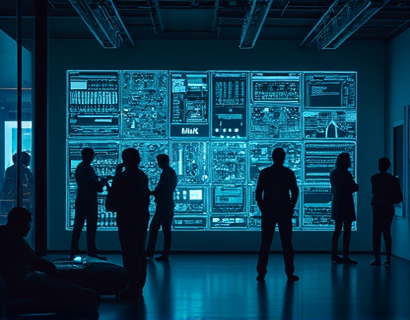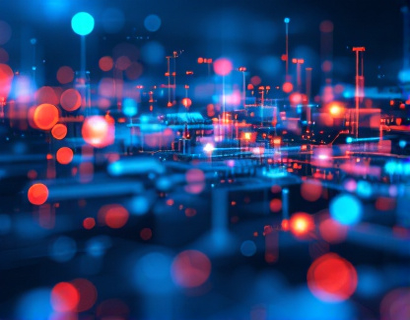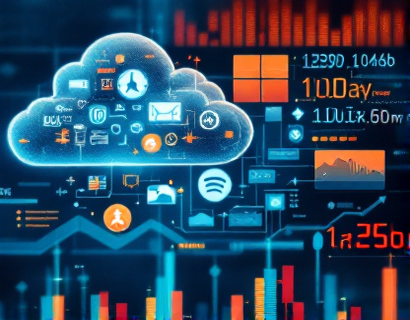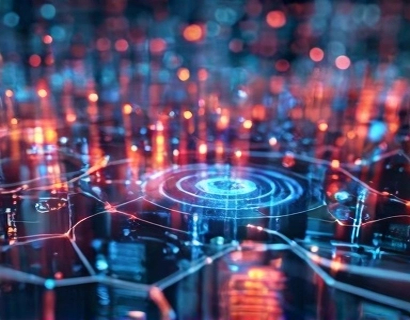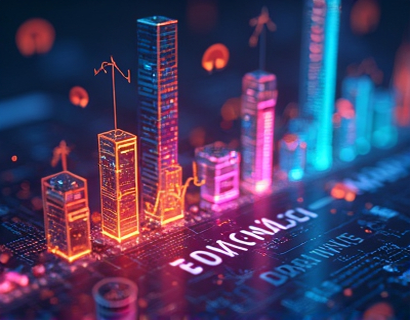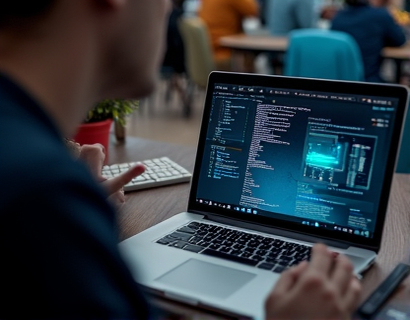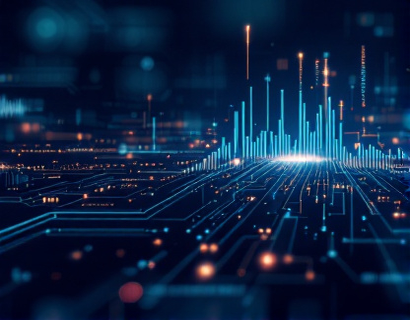Decentralized Productivity Enhanced: Leveraging AI and Crypto for Next-Gen App Ecosystems and User Experience
The integration of artificial intelligence (AI) and cryptocurrency is ushering in a new era of decentralized applications and enhanced user experiences. This fusion is not just a technological curiosity but a transformative force that is redefining how we interact with digital tools and platforms. For tech enthusiasts, professionals, and early adopters, understanding this convergence is crucial for navigating the future of digital innovation. This article delves into how AI and cryptocurrency are merging to create powerful decentralized tools that enhance productivity and redefine user experience, offering insights for those interested in the intersection of technology and decentralization.
The traditional centralized model of software development and application delivery is being challenged by decentralized technologies. Blockchain, the backbone of cryptocurrency, provides a secure, transparent, and tamper-proof ledger for transactions and data storage. When combined with AI, which excels in processing vast amounts of data to provide intelligent insights and automate tasks, the potential for innovation becomes immense. Decentralized applications (dApps) powered by AI can operate without a central authority, reducing the risk of single points of failure and enhancing user trust.
One of the key benefits of decentralized productivity tools is enhanced security. Centralized systems are often targets for cyberattacks due to their centralized nature. In contrast, decentralized systems distribute data across a network, making it much harder for attackers to compromise the entire system. AI can further bolster security by detecting and mitigating threats in real-time, adapting to new vulnerabilities as they emerge. This synergy between AI and decentralization creates a robust framework for secure and reliable productivity tools.
Another significant advantage is the improvement in user privacy. Centralized platforms often collect and store user data, which can be misused or exposed in data breaches. Decentralized applications, on the other hand, can be designed to minimize data collection and give users more control over their personal information. AI can enhance this by enabling privacy-preserving techniques such as homomorphic encryption and zero-knowledge proofs, allowing computations on encrypted data without revealing the underlying information. This ensures that user data remains confidential while still being useful for AI-driven insights.
Decentralized platforms also promote greater transparency and accountability. Every transaction and interaction on a blockchain is recorded and verifiable by all participants. This transparency can build trust among users, as they can see exactly how the system operates and verify the integrity of the applications they use. AI can complement this by providing auditable and explainable algorithms, ensuring that decisions made by AI systems are transparent and justifiable. This combination fosters a more trustworthy digital environment, essential for widespread adoption of decentralized tools.
Productivity enhancements are a core focus of decentralized AI-powered applications. AI can automate repetitive and time-consuming tasks, freeing up users to focus on higher-value activities. For instance, AI-driven virtual assistants can manage schedules, prioritize tasks, and even draft documents based on user preferences and past behavior. These assistants can operate on a decentralized network, ensuring that user data and preferences are securely stored and managed without relying on a central server. This not only improves efficiency but also enhances the user experience by providing a seamless and personalized workflow.
Decentralized marketplaces are another area where AI and cryptocurrency are making a significant impact. Traditional marketplaces often suffer from issues like trust, transparency, and fairness. Decentralized marketplaces powered by blockchain and AI can address these issues by providing a trustless environment where buyers and sellers can transact directly without intermediaries. AI can optimize matching algorithms, ensuring that the right products and services are matched with the right users based on their needs and preferences. Smart contracts can automate transactions, ensuring that agreements are enforced and payments are processed securely and efficiently.
The user experience in decentralized applications is also being revolutionized by AI. Personalization is a key aspect of modern user interfaces, and AI can deliver unprecedented levels of customization. By analyzing user behavior and preferences, AI can tailor the interface and functionality of applications to individual users, creating a more intuitive and efficient experience. For example, an AI-powered decentralized productivity suite can adapt its features and layout based on the user's workflow, preferred tools, and historical usage patterns. This level of personalization is difficult to achieve in centralized systems due to data silos and limited access to user data.
Moreover, decentralized applications can leverage AI to provide real-time feedback and support. Chatbots and virtual assistants driven by AI can offer instant assistance, answering queries and guiding users through complex tasks. These AI-driven interfaces can operate 24/7, ensuring that users receive help whenever they need it. In a decentralized setup, these AI assistants can be distributed across the network, reducing latency and improving response times. This creates a more responsive and user-friendly experience, enhancing overall satisfaction and productivity.
The development of decentralized tools is also fostering innovation by lowering barriers to entry. Traditional software development requires significant resources and infrastructure, often limiting participation to well-funded entities. Decentralized platforms, supported by cryptocurrency, can democratize access to development tools and resources. Developers can contribute to open-source projects, earn rewards in native tokens, and collaborate on a global scale. AI can further enhance this ecosystem by providing automated code generation, bug detection, and optimization suggestions, making it easier for developers to create high-quality applications.
Another exciting development is the emergence of decentralized finance (DeFi) integrated with AI and productivity tools. DeFi platforms offer financial services such as lending, borrowing, and trading without traditional financial intermediaries. AI can enhance these services by providing predictive analytics, risk assessment, and automated trading strategies. For instance, an AI-driven DeFi platform can analyze market trends and user behavior to suggest optimal investment strategies, helping users make informed decisions. This fusion of DeFi, AI, and decentralization creates a powerful ecosystem for financial productivity and management.
In the realm of content creation and collaboration, decentralized platforms are leveraging AI to enhance creativity and efficiency. Writers, designers, and developers can collaborate on projects using decentralized tools that ensure version control, attribute contributions, and manage intellectual property rights. AI can assist in content generation, editing, and optimization, providing suggestions to improve quality and engagement. For example, an AI-powered decentralized writing platform can analyze user inputs and generate drafts, offer grammar and style improvements, and even translate content into multiple languages. This not only speeds up the creative process but also opens up new possibilities for global collaboration.
The integration of AI and cryptocurrency in decentralized productivity tools also addresses the challenge of scalability. Centralized systems often struggle with scalability as the user base grows, leading to slower performance and higher costs. Decentralized networks, combined with AI optimization, can handle large volumes of data and transactions more efficiently. AI can dynamically allocate resources, optimize network traffic, and predict and mitigate bottlenecks, ensuring that the system remains performant and reliable even as it scales.
Furthermore, the economic incentives provided by cryptocurrency can align the interests of different stakeholders in a decentralized ecosystem. Developers, users, and maintainers can all benefit from token rewards, creating a symbiotic relationship that encourages active participation and innovation. AI can manage and distribute these incentives based on predefined criteria, ensuring fairness and motivation. This economic model not only sustains the development and maintenance of decentralized applications but also fosters a community-driven approach to innovation.
As the technology matures, we can expect to see more sophisticated integrations of AI and cryptocurrency in decentralized productivity tools. For instance, AI-driven predictive maintenance can proactively identify and address potential issues in the network, reducing downtime and ensuring continuous operation. Blockchain-based reputation systems, powered by AI, can evaluate the trustworthiness and reliability of users and applications, further enhancing the security and integrity of the ecosystem.
In conclusion, the fusion of AI and cryptocurrency is paving the way for a new generation of decentralized productivity tools that enhance efficiency, security, and user experience. These technologies are not just complementary but synergistic, creating a powerful combination that redefines how we work and interact with digital platforms. For tech enthusiasts and professionals, embracing this convergence is essential for staying ahead in the rapidly evolving landscape of digital innovation. The future is decentralized, intelligent, and empowered, and those who adapt will thrive in this new era of technology.





